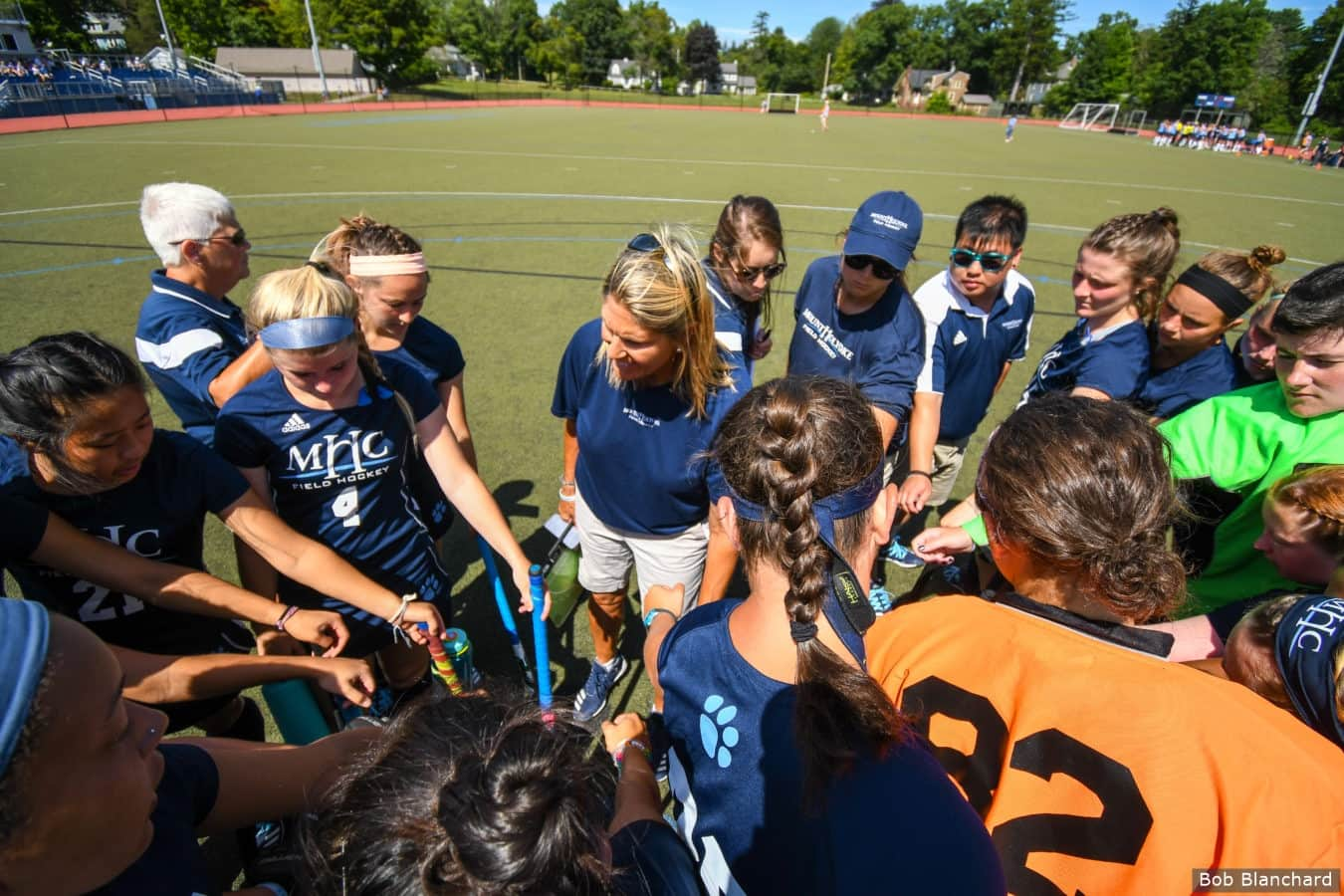
The Impossible Choice of Passion or Truth
by Emet Marwell, Transgender activist, former field hockey player, and Policy & Programs Manager at Athlete Ally

Content Courtesy of Athlete Ally
Images Courtesy of Bob Blancard
“No one said it’d be easy… they said it’d be worth it!”
This quote will always remind me of my college field hockey coach. I first read it at the bottom of an email she sent me when recruiting me in high school. Incidentally, it was during this recruiting period that I first started seriously questioning my gender. For months, I couldn’t bear to even admit it to myself.
“Hypothetically, if you were transgender, could you still compete in women’s field hockey in college?” I asked myself. I made sure to do my research. And the answer was no, not if I began taking testosterone. The NCAA doesn’t allow transgender people taking testosterone to compete on women’s teams, and in the U.S., there is no collegiate men’s field hockey. Life was handing me two options: suppress my true self and follow my passion, or live my truth and give up my dream of a collegiate field hockey career. I told myself I must not be transgender, I couldn’t be. At 16 years old, prime recruiting age, I chose field hockey.
By the spring of my senior year of high school, I had accepted a spot on the field hockey team at Mount Holyoke College, a small gender-inclusive women’s college in western Massachusetts. I chose to defer a semester so I could improve my mental health which had deteriorated as I struggled with my gender identity. I often think of my first semester at Mount Holyoke as my “last-ditch effort” to be a woman; I was the most feminine I had ever been in my life. I wore dresses and did my make-up nearly every morning, doing what I thought I had to do to “be a woman” and belong at a women’s college.
I worried about the consequences of transitioning. Would I be viewed as a cheater or a freak? I was concerned with the common misconception claiming that taking testosterone as part of hormone replacement therapy is equivalent to taking performance enhancing drugs. I was terrified of using a locker room and being kicked out or worse, sexually harassed for using the “wrong” one. Most of all, I was worried about losing the athletics community that has given me so much. I didn’t want the unwavering love and support to disappear if I transitioned.

At the same time, I was already feeling the consequences of not transitioning. Having to listen to “Here we go, ladies!” during practice wore me down a little bit more each day. My body was familiar, but not truly mine. I felt increasingly suffocated as I forced myself to be someone I’m not. Despite having taken a semester off to bolster it, my mental health was rapidly declining behind the facade of a thriving young woman.
I finally began to explore the idea of transitioning during May of 2015. I discovered the wonderful community of transgender men on Instagram and found that there are other transgender athletes like me. The one difference, though, was that most of them had the option to continue their sport on a men’s team after beginning testosterone. I didn’t have that opportunity. Once I began taking testosterone, there would be no way for me to fulfill my dream of becoming a collegiate field hockey player.
Transitioning was both liberating and soul-crushing. I was forced to choose between finally taking the hormones to gain the body that is so rightfully mine, or fighting excruciating gender dysphoria to continue playing the sport I love.
I began testosterone in Fall 2015. I cannot articulate how lucky I am that my team and my coaches were overwhelmingly supportive and kept me around as a team manager. I did not, as I had expected, have to walk away from the Mount Holyoke field hockey team, and was not rejected from the athletics community as I had feared. Beyond acceptance, I am embraced for being me.
I often wonder what my life would have been like had I continued playing field hockey at the collegiate level. How good would I have become? What sort of athlete would I have proven to be? Would I have been a starter? What would my stats have looked like? These questions haunt me regularly, but I try not to dwell on them. Even though I didn’t become the field hockey player I so longed to be, I became the man I never thought I could be.
Stepping into myself wasn’t easy — not even close — but it was 100%, beyond a doubt, worth it.